Several strands of discussion came together in my mind recently, sparked first by an email from the Vikram Sarabhai Community Science Centre, asking for Science Communicators, and then by two op-ed articles in the Hindu, on whether or not scientists should be responsible for communicating their science to the general public, apart from some ongoing discussions in FB and on Twitter on the same issues.
 There is no gainsaying that this is an important matter, and a difficult one to address in a wholly satisfactory manner, especially in a multilingual country like ours, one where the general level of education is not as high as one would like. Nevertheless, one must laud efforts that have a non-negligible impact, and the Science Express is a brilliant example of how things can be done right. This is a unique collaboration of the Department of Science and Technology, the Science Museums and the Indian Railways who have come together to make a science exhibition train that travels across the country, and has been doing so since 2007, and by now it has traveled over 142,000 km and welcomed more than 1.56 crore visitors. It has become the largest, longest running and most visited mobile science exhibition in the world. Now the DST wants people to man this remarkable science museum. They would like
There is no gainsaying that this is an important matter, and a difficult one to address in a wholly satisfactory manner, especially in a multilingual country like ours, one where the general level of education is not as high as one would like. Nevertheless, one must laud efforts that have a non-negligible impact, and the Science Express is a brilliant example of how things can be done right. This is a unique collaboration of the Department of Science and Technology, the Science Museums and the Indian Railways who have come together to make a science exhibition train that travels across the country, and has been doing so since 2007, and by now it has traveled over 142,000 km and welcomed more than 1.56 crore visitors. It has become the largest, longest running and most visited mobile science exhibition in the world. Now the DST wants people to man this remarkable science museum. They would like
Young science postgraduates/graduates or equivalent. Education or experience in science communication, science education, environmental science, environment education, life sciences or related disciplines will be given preference. Excellent communication skills and knowledge of multiple Indian languages is desirable. Candidates should be self-motivated and medically fit for the long and continuous exhibition tour.
Self-motivation is indeed required, and the ad spares no punches: The job involves work without off days and continuous travel on the train.This being a mobile exhibition, changing location frequently, the candidates should have ability to quickly adapt to different and challenging local conditions. Consolidated salary in the range of Rs. 20,000 to 24,000/- per month…
As the photo above (taken from the SE website) shows there are people who will bite, though one does wish that the job would be more remunerative- what the train does seems so valuable, and in a country like ours, so severely necessary.
Coincidentally, and somewhat ironically, one of the op-eds in the Hindu pointed out the lack of science communicators or more accurately, the lack of a critical mass of science communicators in the country. That of course is neither here nor there, since there is the glaring lack of a critical mass of persons from almost any discipline (or of persons of discipline for that matter) in the country. But Gautam Desiraju makes other points when he asks “Are scientists responsible for communicating their work to the general public?” Both his write-up as well as the counterpoint by R. Prasad, whose rejoinder simply points out that ‘There is a huge price to pay when scientists remain in a cocoon’ are charmingly illustrated with images of scientists communicating with non-specialists!
This morning I had occasion to talk with a younger colleague about these viewpoints, and both of us recalled how influential (in our own lives) some popular books by well-known scientists had been: What is Life? by Erwin Schrödinger, Stephen Hawking’s Brief History of Time, or James Watson’s Double Helix, not to mention some truly popular books (in their times) by some of the greatest scientists, The Origin of Species by Darwin and Cybernetics by Norbert Wiener. I only learned very recently that Wiener was persuaded to write up his ideas in order to communicate them to the public by a French publisher – and given the prolixity of the language used, it is a wonder that the book reached as far and wide as it did. Nevertheless, as we use cyberspace to communicate our ideas today, our debt to him is obvious. And the very readable What is life? resulted from a set of lectures to the general ‘lay’ public in Dublin in the war years.
The importance of communicating one’s ideas to whatever audience that shows an interest cannot be overstated. I’m not sure I want to get into whether it is a scientist’s moral obligation or duty to do so, but it does seem to me that the value of most things we do is enhanced when the communal nature of our activities is explicitly recognized. And the effectiveness of the work is directly related to the size and width of the community that is aware of or is made aware of it.
Investment in research or in scientific activity is ultimately a community decision – and given our political system, it is reflected in the way in which the budget for science is decided. Which in turn is determined by the party (or parties) we vote into power. The bulk of research in the country is therefore publicly supported, and one of the issues at hand is whether the results of publicly funded research need to be shared with the public that funded it. [The argument has been made very forcefully in the west, where research is funded both publicly and privately. When private companies fund research, the results are guarded zealously for possible patents, but many have argued for full public access to publicly funded research – and this has formed the vanguard of the Open Access movement. But of that later.] One can take the point of view that the public in question do not have the required sophistication to appreciate the nuances, the finer details of most areas of research, and there is some truth in that. But the same argument would hold for, say, music, or cuisine, or poetry or any number of things that we enjoy as a community and appreciate as individuals. Each of us may hear the notes we wish to hear – or can hear, for that matter – and make of it what we will. We may get a sense of the larger scheme of things, whether the finer points of raga Anandabhairavi or the crucial role played by the p53 gene in each of our cells, or any number of the other wonders that we have created or discovered, and there will be those among us for whom even this vague sense will provide the catalyst for other avenues of exploration and discovery.
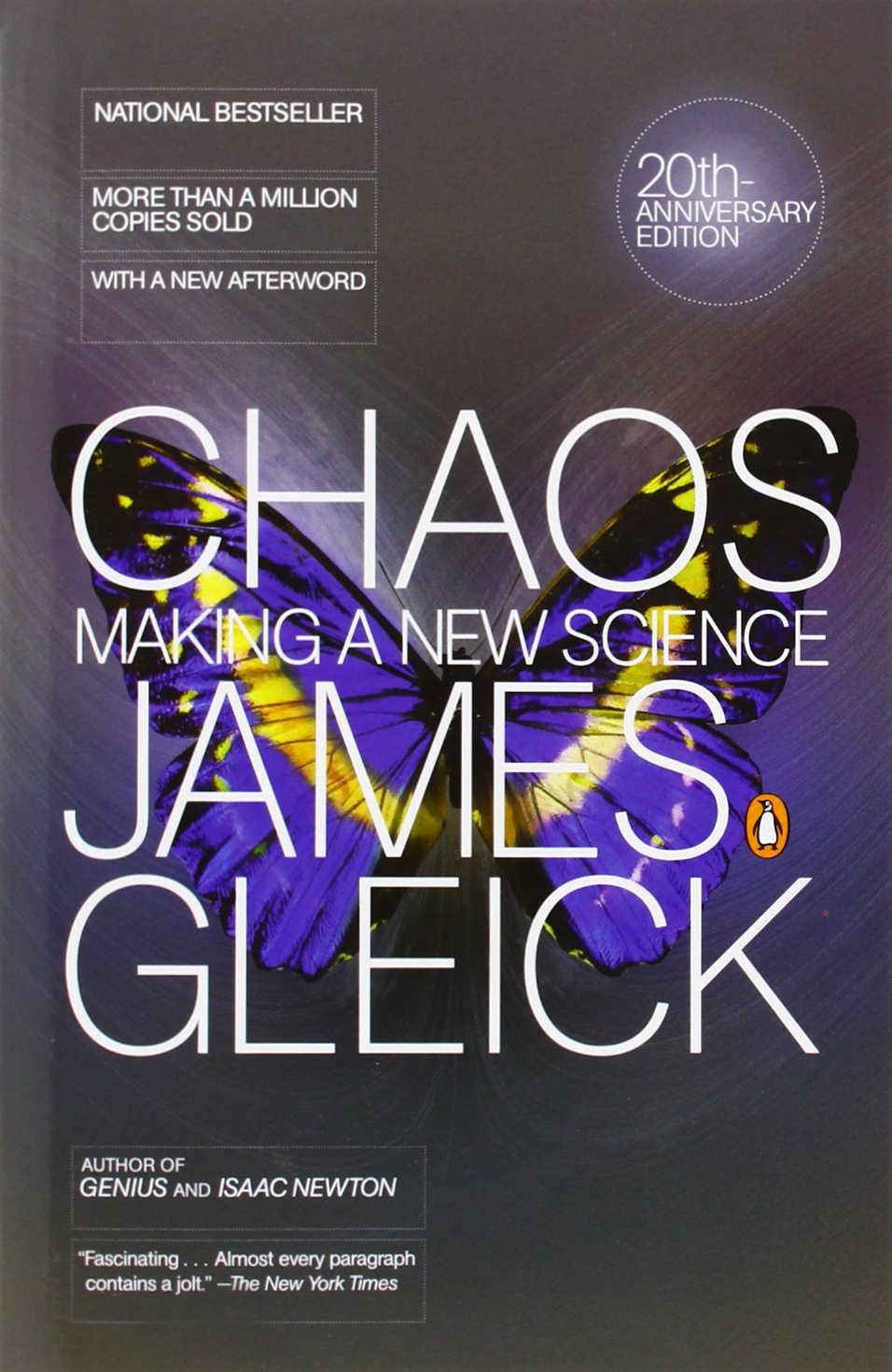 There is a sense in which the privilege of being invested in to pursue publicly funded research is very much an expression of the trust of a society. By acknowledging this as part of a social contract, almost the very least one can do is to pay back to society by talking openly (and clearly) about what one does and the results one has obtained. If one doesn’t, there is always the danger that someone else, less able and less articulate might well do so, and other than writing bitterly about X’s misrepresentations, one will not be able to do much else. Science communicators (as a tribe) play a different role. At their best, their function is to integrate many approaches in an analytical manner, and present this in a format that is sometimes easier on the eye. (In this genre, and from my own area of interest, there are few books that compare with James Gleick’s Chaos: Making a New Science, a hugely popular and hugely influential description of chaos theory and nonlinear science. And accurate as well.)
There is a sense in which the privilege of being invested in to pursue publicly funded research is very much an expression of the trust of a society. By acknowledging this as part of a social contract, almost the very least one can do is to pay back to society by talking openly (and clearly) about what one does and the results one has obtained. If one doesn’t, there is always the danger that someone else, less able and less articulate might well do so, and other than writing bitterly about X’s misrepresentations, one will not be able to do much else. Science communicators (as a tribe) play a different role. At their best, their function is to integrate many approaches in an analytical manner, and present this in a format that is sometimes easier on the eye. (In this genre, and from my own area of interest, there are few books that compare with James Gleick’s Chaos: Making a New Science, a hugely popular and hugely influential description of chaos theory and nonlinear science. And accurate as well.)
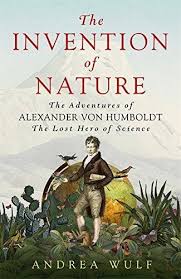 The friendship and the intense discussions between Goethe and Humboldt, for instance, as Andrea Wulf discusses in her brilliant The Invention of Nature, were mutually very influential, with Humboldt’s detailed reports being inspirational not just to Goethe, but also to Darwin, Wordsworth and John Muir among others. One can argue that the state of science, and the state of the world, was very different two centuries ago, as it surely was. Card-carrying scientists were fewer and the language that scientists used was not as forbiddingly jargon-filled as it can seem today, but there is good evidence that the lay public flocked to hear Humboldt and his descriptions of South America, much as today’s audience might well be glad to hear from a specialist, of the unexplored vistas of string theory or human behaviour or the brain.
The friendship and the intense discussions between Goethe and Humboldt, for instance, as Andrea Wulf discusses in her brilliant The Invention of Nature, were mutually very influential, with Humboldt’s detailed reports being inspirational not just to Goethe, but also to Darwin, Wordsworth and John Muir among others. One can argue that the state of science, and the state of the world, was very different two centuries ago, as it surely was. Card-carrying scientists were fewer and the language that scientists used was not as forbiddingly jargon-filled as it can seem today, but there is good evidence that the lay public flocked to hear Humboldt and his descriptions of South America, much as today’s audience might well be glad to hear from a specialist, of the unexplored vistas of string theory or human behaviour or the brain.
Hearing about a subject from someone who has contributed greatly to it can be much more than just inspirational: the authenticity of experience transmits itself in a very unique manner. It is quite another thing to have someone else talk about it, though there are exceptions, of course- some science journalists are very effective communicators of the big picture, in a way that a practitioner who is focused on some small portion of the puzzle may not be. And of course, this is their forte, putting together a narrative that can grip a reader in a way in which an individual’s very personal story might not. But authenticity has a separate value and cannot be substituted…
Which is why it might be good to occasionally worry about communicating just what it is that one does – science, poetry, or philosophy – to a wider and larger audience. The process might well be beneficial to the quality of what one does in the first place! And today there are many different ways in which this might be done. Through a blog, for instance, or a YouTube channel, through books and articles, or by public lectures, the tradition for which is sadly absent in most of our cities.
Does this, namely taking the time to communicate one’s work to others – even if one doesn’t have to – take away from the presumably more important task at hand, of doing the science in the first place? To which one might well ask why do science at all then. And in any case, it is an unrepeatable exercise. What other work would Gamow have done if he had not written 1, 2, 3… infinity? Or what other vistas might Richard Dawkins have explored, had he not spent his time writing The Selfish Genome or The Extended Phenotype. I prefer to think that this, in itself, was the essential task, to write the books that would go on to influence others.
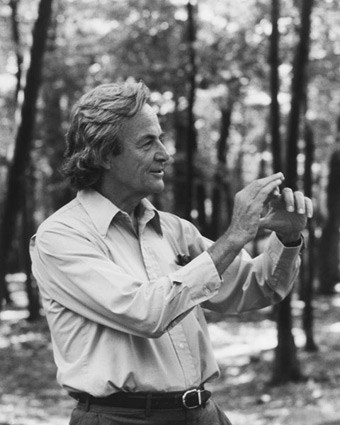 One can go on talking about talking about science… but in the end the basic points are few. There needs to be much more about scientific matters in public discourse, particularly in this day and age, when almost any aspect of our daily life is so influenced by the scientific advances of the past few centuries. It has always needed science communicators (who may or may not be practicing scientists) to do their bit, to bring out the significance of the work, and to see where value can be added. But hearing about any field directly from the ones who have contributed to its advance – in whatever way – has a charm and value all of its own.
One can go on talking about talking about science… but in the end the basic points are few. There needs to be much more about scientific matters in public discourse, particularly in this day and age, when almost any aspect of our daily life is so influenced by the scientific advances of the past few centuries. It has always needed science communicators (who may or may not be practicing scientists) to do their bit, to bring out the significance of the work, and to see where value can be added. But hearing about any field directly from the ones who have contributed to its advance – in whatever way – has a charm and value all of its own.
 Shortly after I moved to New Delhi in 1986, I got to spend six weeks in Campinas, Brazil. On the way to the beach at Guarujá one weekend I drove with some friends through the not so picturesque town of Cubatão, which, as Wikipedia will gladly tell you, was one of the most polluted cities in the world, nicknamed “Valley of Death”, due to births of brainless children and respiratory, hepatic and blood illnesses. High air pollution was killing forest over hills around the city.
Shortly after I moved to New Delhi in 1986, I got to spend six weeks in Campinas, Brazil. On the way to the beach at Guarujá one weekend I drove with some friends through the not so picturesque town of Cubatão, which, as Wikipedia will gladly tell you, was one of the most polluted cities in the world, nicknamed “Valley of Death”, due to births of brainless children and respiratory, hepatic and blood illnesses. High air pollution was killing forest over hills around the city.
 Breathing hurts. The eyes smart, one can feel the acidity (or so I imagine) of the air as it passes through one’s nostrils. It does not smell particularly bad always, but the air is not fresh by any stretch of the imagination. It is just impossible to take a deep breath and that has ruled out any exercise, even the most modest exertion. Schools were shut last week for a few days, but they have reopened, and there is little indication that serious political intervention is going to take place. The long term effects on us all, and on the environment is worth thinking about, else it may not be long before our city’s Wiki entry includes the epitaph “high air pollution killed Delhi’s urban forests”.
Breathing hurts. The eyes smart, one can feel the acidity (or so I imagine) of the air as it passes through one’s nostrils. It does not smell particularly bad always, but the air is not fresh by any stretch of the imagination. It is just impossible to take a deep breath and that has ruled out any exercise, even the most modest exertion. Schools were shut last week for a few days, but they have reopened, and there is little indication that serious political intervention is going to take place. The long term effects on us all, and on the environment is worth thinking about, else it may not be long before our city’s Wiki entry includes the epitaph “high air pollution killed Delhi’s urban forests”.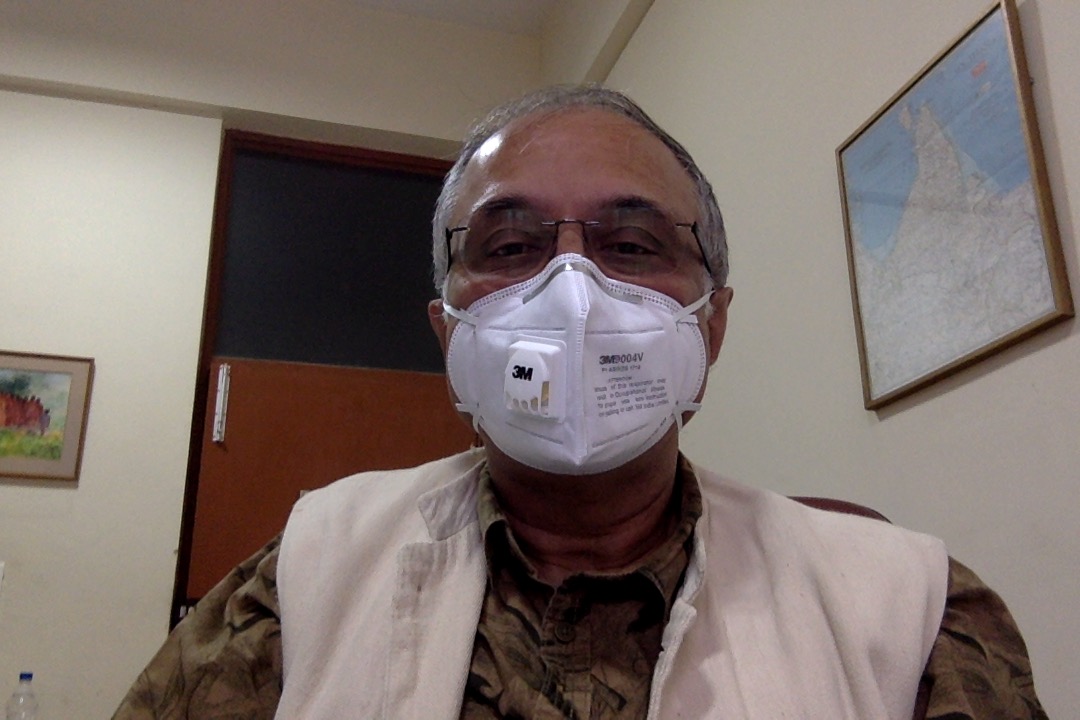 Yesterday, in particular, was very difficult- even in my office in JNU, arguably one of the greener parts of Delhi, wearing a mask made it somewhat easier to breathe. I posted this picture on Facebook and was inundated with invitations to move to Kashmir, Hyderabad, Manipur, Melbourne, and ironically, São Paulo! I hear that things have improved there since the 1980’s so maybe its a good option. Cubatão, here I come!
Yesterday, in particular, was very difficult- even in my office in JNU, arguably one of the greener parts of Delhi, wearing a mask made it somewhat easier to breathe. I posted this picture on Facebook and was inundated with invitations to move to Kashmir, Hyderabad, Manipur, Melbourne, and ironically, São Paulo! I hear that things have improved there since the 1980’s so maybe its a good option. Cubatão, here I come!
 I’ve had to travel to Bangalore to chair a panel discussion on the 27th January, and to minimise my time away from Delhi, I decided to go out on the 26th and return on the 27th. I had asked my assistant at the office (which shall remain nameless) to book my tickets. On the 26th, I reached Delhi’s T3 terminal at 11:30 for my flight that was scheduled to leave at 12:55, only to find that it was further delayed on account of fog, rain, and also the Republic Day Air Force flypast… So the first Unfortunate event (UE1) was that I reached Bangalore at 6:30 that evening, three hours after I should have been there, necessitating programme changes, etc. etc. I had only myself to blame – a little thought would have told me that it is madness to fly out of or into Delhi on Republic Day with the added security, but hindsight is no solace.
I’ve had to travel to Bangalore to chair a panel discussion on the 27th January, and to minimise my time away from Delhi, I decided to go out on the 26th and return on the 27th. I had asked my assistant at the office (which shall remain nameless) to book my tickets. On the 26th, I reached Delhi’s T3 terminal at 11:30 for my flight that was scheduled to leave at 12:55, only to find that it was further delayed on account of fog, rain, and also the Republic Day Air Force flypast… So the first Unfortunate event (UE1) was that I reached Bangalore at 6:30 that evening, three hours after I should have been there, necessitating programme changes, etc. etc. I had only myself to blame – a little thought would have told me that it is madness to fly out of or into Delhi on Republic Day with the added security, but hindsight is no solace.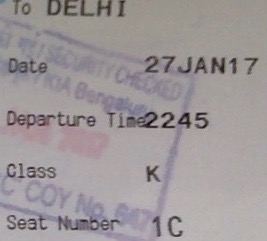 Although I was not allowed on that flight, I eventually made it back to Delhi by the next flight, although that wasn’t for another two hours, which means I got back a day later, on the 28th… In the process I had to cancel one ticket, buy another, cancel that, get a third, The details are dreary, but I also learned just how shoddy the so-called security at our airports is… I dare say that nobody thinks its that great anyhow, but we all go through the motions.
Although I was not allowed on that flight, I eventually made it back to Delhi by the next flight, although that wasn’t for another two hours, which means I got back a day later, on the 28th… In the process I had to cancel one ticket, buy another, cancel that, get a third, The details are dreary, but I also learned just how shoddy the so-called security at our airports is… I dare say that nobody thinks its that great anyhow, but we all go through the motions.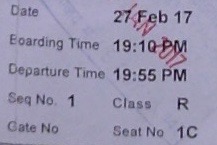 UE3: Nobody checked the tickets that had been sent by email – not my secretary, not the office staff. Me neither.
UE3: Nobody checked the tickets that had been sent by email – not my secretary, not the office staff. Me neither. I came into the plane, and immediately faced UE9, and feeling somewhat like baby bear, I pointed out to the stewardess that someone had been sitting in my chair and he was still there… Very kindly, even after comparing the two boarding passes, she reassigned me to a new seat, and its number 13C should have warned me that that was indeed UE10. I settled in, retrieved my Keigo Higashino (Malice, by the way, and an excellent read!) listened to another attendant tell us in a loud voice and with considerable attention to detail just what to do if there was an emergency landing (I always pay attention to which handle I am supposed to pull), and suddenly a couple of other airlines staff rush in ask for my boarding pass, match the torn stub and ask me to get up. Alarm bells going off in my mind, it was surely UE11: Something is wrong with my ticket, and without explaining, they take my luggage off the plane and ask me to follow them, leading to
I came into the plane, and immediately faced UE9, and feeling somewhat like baby bear, I pointed out to the stewardess that someone had been sitting in my chair and he was still there… Very kindly, even after comparing the two boarding passes, she reassigned me to a new seat, and its number 13C should have warned me that that was indeed UE10. I settled in, retrieved my Keigo Higashino (Malice, by the way, and an excellent read!) listened to another attendant tell us in a loud voice and with considerable attention to detail just what to do if there was an emergency landing (I always pay attention to which handle I am supposed to pull), and suddenly a couple of other airlines staff rush in ask for my boarding pass, match the torn stub and ask me to get up. Alarm bells going off in my mind, it was surely UE11: Something is wrong with my ticket, and without explaining, they take my luggage off the plane and ask me to follow them, leading to  In all this, and I guess that’s one of the things that kept me reasonably equable, there were moments of comedy. One handler at the aerobridge asked me why I had come a month early for my flight! Another set of people asked me why I booked for February if I wanted to travel in January (although it was painfully obvious from the nature of my ticket that it was booked by someone else). But the cake, so to speak, was taken when they told me that they would have to rebook me on another flight, and the supervisor said that they had two flights, one at 10:45 pm and another at 00:45 am, and “
In all this, and I guess that’s one of the things that kept me reasonably equable, there were moments of comedy. One handler at the aerobridge asked me why I had come a month early for my flight! Another set of people asked me why I booked for February if I wanted to travel in January (although it was painfully obvious from the nature of my ticket that it was booked by someone else). But the cake, so to speak, was taken when they told me that they would have to rebook me on another flight, and the supervisor said that they had two flights, one at 10:45 pm and another at 00:45 am, and “ There is no gainsaying that this is an important matter, and a difficult one to address in a wholly satisfactory manner, especially in a multilingual country like ours, one where the general level of education is not as high as one would like. Nevertheless, one must laud efforts that have a non-negligible impact, and the
There is no gainsaying that this is an important matter, and a difficult one to address in a wholly satisfactory manner, especially in a multilingual country like ours, one where the general level of education is not as high as one would like. Nevertheless, one must laud efforts that have a non-negligible impact, and the  There is a sense in which the privilege of being invested in to pursue publicly funded research is very much an expression of the
There is a sense in which the privilege of being invested in to pursue publicly funded research is very much an expression of the  The friendship and the intense discussions between Goethe and Humboldt, for instance, as Andrea Wulf discusses in her brilliant
The friendship and the intense discussions between Goethe and Humboldt, for instance, as Andrea Wulf discusses in her brilliant  One can go on talking about talking about science… but in the end the basic points are few. There needs to be much more about scientific matters in public discourse, particularly in this day and age, when almost any aspect of our daily life is so influenced by the scientific advances of the past few centuries. It has always needed science communicators (who may or may not be practicing scientists) to do their bit, to bring out the significance of the work, and to see where value can be added. But hearing about any field directly from the ones who have contributed to its advance – in whatever way – has a charm and value all of its own.
One can go on talking about talking about science… but in the end the basic points are few. There needs to be much more about scientific matters in public discourse, particularly in this day and age, when almost any aspect of our daily life is so influenced by the scientific advances of the past few centuries. It has always needed science communicators (who may or may not be practicing scientists) to do their bit, to bring out the significance of the work, and to see where value can be added. But hearing about any field directly from the ones who have contributed to its advance – in whatever way – has a charm and value all of its own.